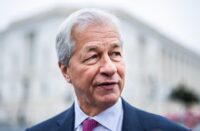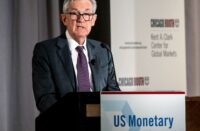Headline: Proposed US Regulations Could Restrict Nicotine Levels in Cigarettes
The US regulatory authorities are contemplating the introduction of a novel policy, which would limit nicotine content in cigarettes to non-addictive levels. If implemented, this unprecedented initiative could help control tobacco consumption and subsequently impact the profit margins of the tobacco industry.
The US Food and Drug Administration (FDA), the watchdog for nicotine-based products, initially mooted this revolutionary idea in 2017. The agency believes that the move could save lives by reducing the incidence of diseases and deaths resulting from the harmful chemicals produced when tobacco is burnt.
This Wednesday, the FDA suggested a nicotine cap of 0.7 milligrams per gram of tobacco in combustible products including cigarettes, cigars, and self-rolled tobacco. However, the proposed regulation would not affect alternative nicotine products like vapes, nicotine pouches, and heated tobacco.
Brian King, the director of FDA Center for Products, commented during a press conference that the proposed nicotine limit, which is about 95% lower than the current levels found in cigarettes, could effectively disrupt the cycle of addiction.
According to the FDA’s predictive modelling, the proposed cap could deter approximately 48 million youngsters and young adults from initiating smoking. Furthermore, it is expected that over 12.9 million smokers would quit within a year of the regulation’s implementation, with the number potentially rising to 19.5 million in five years.
Such a regulation could pose a significant challenge to large tobacco conglomerates like British American Tobacco and Marlboro-maker Altria. Although these companies have seen growth in sales from alternative products like vapes, the significant portion of their revenue still comes from traditional tobacco products.
Altria protested against the proposed cap, stating it was unnecessary and lacked scientific backing. Both companies expressed concerns that the proposed regulation could foster a black market for nicotine products.
The FDA’s proposition has been hailed as a potential game-changer by Yolanda Richardson, the President and CEO of the Campaign for Tobacco-Free Kids. She has urged incoming President Donald Trump to ratify and enforce this regulation when he assumes office on January 20th.
The FDA has opened up a public commenting period until September on the proposal. They also suggested that any finalized rule should only come into effect two years after its announcement.




